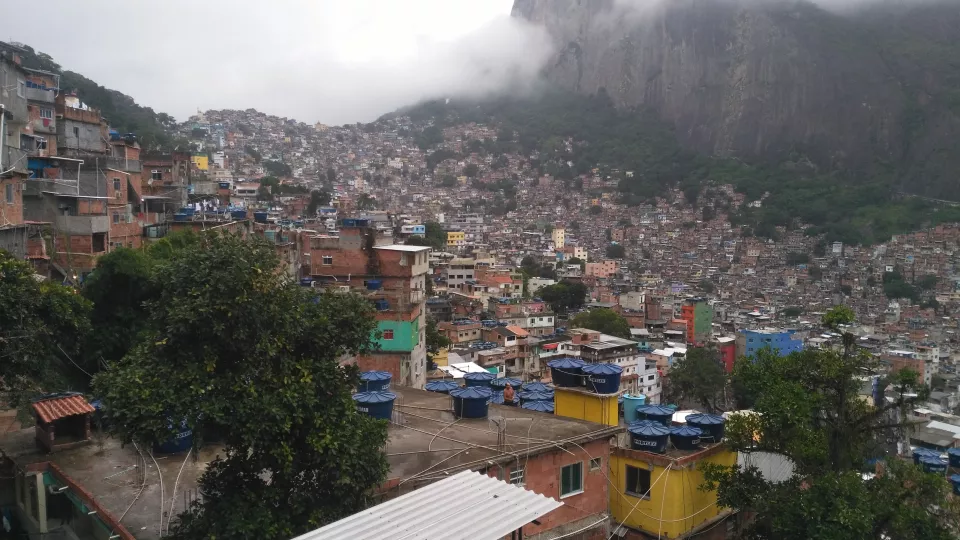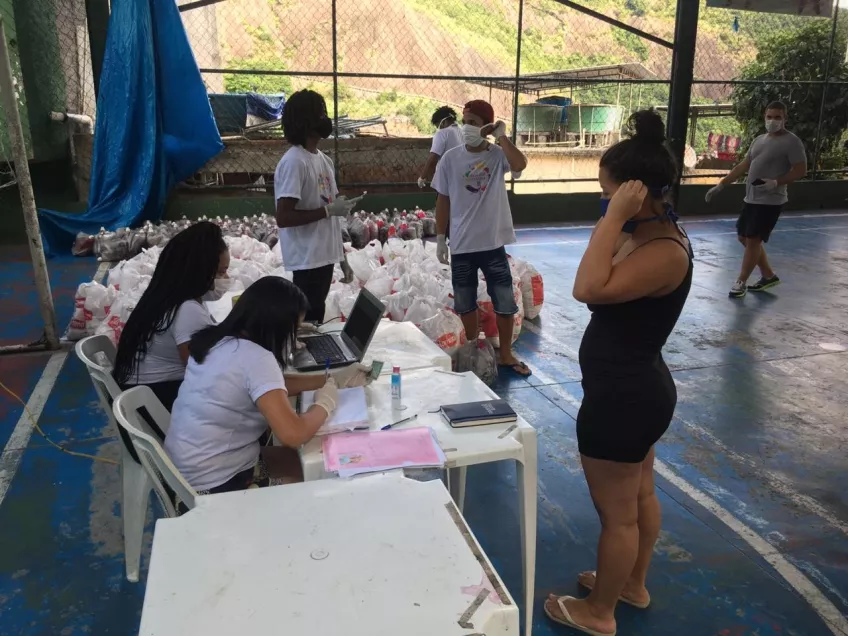How was your daily life impacted by the coronavirus pandemic?
At the time of the outbreak, I was in Brazil as a visiting postdoc to do research about climate change risk and adaptation in the favelas (“slums”). My host university in Rio de Janeiro took the decision to move classes online and encourage staff to work from home in the same week as my Swedish department did. Meanwhile, there was increasing pressure (social pressure as well as from the state authorities) to avoid going out, for those who had this privilege. Soon I found myself isolated in my small apartment, working from home and only going out for groceries.
What did it mean for your projects and research?
This of course had implications for my research, which was based on close interactions with activist groups in the favelas and local scholars working on the topic. When I stopped going to the university, I also cancelled my physical meetings in the favela, since it is particularly susceptible to the spread of the virus, and residents were expressing worry in social media about seeing foreigners (potential virus carriers) in their community.
My research could partly be moved online, with Skype interviews and virtual observation of how favela activists use social media like Twitter to mobilize against coronavirus – which actually speaks a lot to my research on community-based risk reduction. Finally, I took the decision to go back to Sweden.
What are the impacts in Brazil that you noticed?
I watched the crisis unfold on the news with the number of cases in Brazil increasing day by day.
At the national level, president Jair Bolsonaro called covid-19 a “little flu”, that wouldn’t affect Brazilians who were “used to jumping in the sewers”, and encouraged people to keep going to work and to church. Meanwhile, the state governors of Rio de Janeiro and São Paulo took own measures to impose restrictions on travel and social gatherings. In Rio, the military police were engaged to stop people from visiting public squares, beaches, and parks.
In many ways, the corona crisis has made the right-wing Bolsonaro government’s polarizing politics and disregard for science even more obvious. While cuts in education, science and health were already acute, since the start of the crisis he has threatened to fire his health minister Luiz Mandetta (who in line with the WHO advocates for quarantine) and a new ordinance was introduced that jeopardizes postgraduate scholarships in the country.
What struck me was the apparent lack of contingency plans for the spread of a new epidemic disease in the favelas (where they are still fighting ‘old’ diseases such as tuberculosis, dengue, and leptospirosis). Via the hashtags #COVID19NasFavelas and #CoronaNasPeriferias, residents and community reporters from favelas and peripheries testify to the slow reaction from the state and the exclusionary nature of the recommendations to “wash hands, use hand sanitizers, and practice social distancing”.
Particularly concerning is the issue of water scarcity. While many favela residents, although not nearly all, have infrastructure for water in their houses, the water itself is rationed for poor neighborhoods, and they can go days or (in worst case) even weeks without supply. For example, on March 21, the organization Coalizão pelo Clima (Coalition for Climate) denounced in a Tweet to public water company Sabesp that 39 poor neighborhoods in São Paulo were without water, while the city’s water reservoirs were full.
Favela residents reported via the hashtags how they can’t afford hand sanitizer and bottled water, and they lack space for social isolation in crowded and poorly ventilated homes and neighborhoods, which already have a higher prevalence of tuberculosis and diabetes compared to formal areas.
In addition, many residents who work in the informal economy or in blue-collar jobs risk losing their job or income if following the recommendation to stay home. The first covid19-related death in Rio de Janeiro was a 63-year old domestic worker, whose employer had recently come back from Italy. This generated a discussion about inequality in Brazilian society and how people should let their maids stay home with sustained pay.
You are doing research with groups that are already vulnerable, how do you think they will be able to cope with the outbreak?
There have been a few covid-19 cases confirmed in favelas, such as the communities of Rocinha and Cidade de Deus. Widespread spreading of the coronavirus has yet to be reported in the favelas, but it is what everybody fears. Apart from the devastating impacts the virus will have there, many people are already feeling the loss of income and associated hunger.
Already used to the chronic neglect from the state, there has been considerable social mobilization from residents’ associations, activist groups and private actors who are distributing sanitation kits, food baskets, and producing information materials, banners and even songs to inform the population in accessible ways. (One message of the more humorous kind says: “They discovered the plant that cures coronavirus – ‘plant’ your butt in the sofa and stay home.”) There are also records of favela residents’ associations that, without waiting for government to intervene, hire private medical services, including doctors and ambulances for their communities.
Meanwhile, health minister Mandetta said on April 3rd that the Ministry is working with great concern to create a management plan for favelas and communities, and referred to the situation of Covid19 in the favelas as a “difficult puzzle” and the "great Brazilian enigma".
What are your reflections on doing research in times of corona, and on sustainability issues?
First, I think these times require compassion and understanding towards colleagues, students and ourselves. Everybody’s situation is different – whether it is being alone far from your loved ones, locked into a small space with unruly kids, or having the disease affect you and your family personally. It is not strange, during these distressing times, if we find it hard to concentrate and deliver as we usually do.
On the research side, I know some colleagues are feeling discouraged and questioning how their research matters in a time when the coronavirus dominates all media outlets. I think it’s important to remember that the ‘normal’ sustainability challenges continue even if they go unreported right now. Not least issues such as sanitation, water access, food security, and environmental justice are crucial.
Finally, while it may seem to some like disconnected ‘navel-gazing’ at a time like this, I think it is more important than ever to reflect on the role of science, scientists, and disciplinary boundaries in the world. This includes concepts like ‘epistemic humility’ – how to tread carefully when crossing boundaries into scientific fields which are not your own – and how to communicate science with the public when both uncertainty and decision stakes are high.


